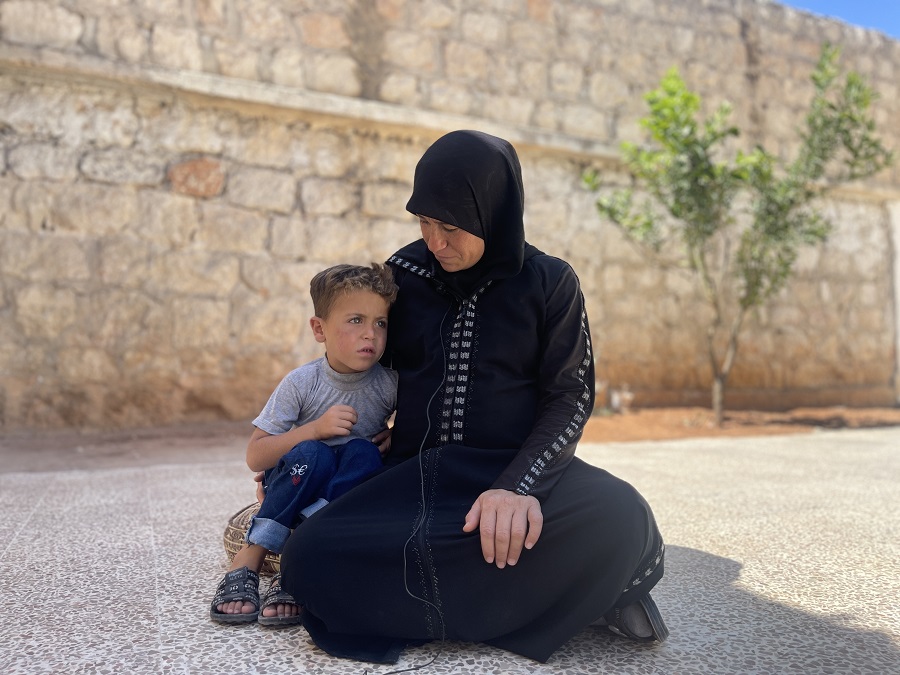 4-year-old Omar after his recovery from leishmaniasis
4-year-old Omar after his recovery from leishmaniasis
5 December 2022, Aleppo, Syria – A 4-year-old child should be able to play outside with his friends. But not Omar, due to a large lesion on his cheek delivered by a sandfly carrying leishmaniasis.
Leishmaniasis is serious disease, spread by sandflies which bite uncovered parts of the body. It goes undetected during the first phases of infection, as patients experience no more than the effects they would from a regular mosquito bite. Once a few months have passed, the lesion begins to swell abnormally.
WHO cooperates with different health partners to reduce the suffering of the Syrian people caused by leishmaniasis, by offering treatment for infected patients, by providing preventive measures such as bed nets against the sandflies, or by conducting spraying campaigns in heavily infested areas.
“My son, Omar, had a lesion on his cheek. I thought nothing of it at first, until over 2 months had passed with the lesion still present,” said Um Omar from rural Aleppo. “When I heard about the WHO-supported mobile clinic visiting the village a few months ago, I rushed for a consultation. The doctors diagnosed Omar with leishmaniasis, and immediately referred him to the Al-Furkan Centre in Aleppo to receive the proper treatment,” she added.
Most leishmaniasis cases in Syria are found in the rural areas of Aleppo, where the violence generated by the protracted conflict has caused limited access to safe water and poor living conditions, including homes being set up among the rubble.
During the WHO-supported leishmaniasis control campaign in Aleppo and Rural Aleppo from July to September 2022, 140 health workers sprayed more than 45 300 houses, home to over 234 600 people.
“Leishmaniasis is one of WHO’s prioritized neglected tropical diseases. We are doing our best to support the national efforts in controlling the disease and attaining the sustainable development goals (SDGs) by 2030,” said Dr Iman Shankiti, WHO Representative in Syria. “We need to extend our joint efforts with Member States, donors, implementing partners, disease experts and all other stakeholders to align our strategies and plans towards infection prevention and alleviating the suffering of people affected by leishmaniasis,” she added.
“For the last 3 years, three family members have been infected – in other words, one every year! And this applies to most of the village homes. We have suffered from this disease even before the crisis began,” said Abu Mohammad, also from rural Aleppo, adding that “Thankfully, the continuous efforts by the mobile health teams are reflecting positively on the overall situation in the village.”


